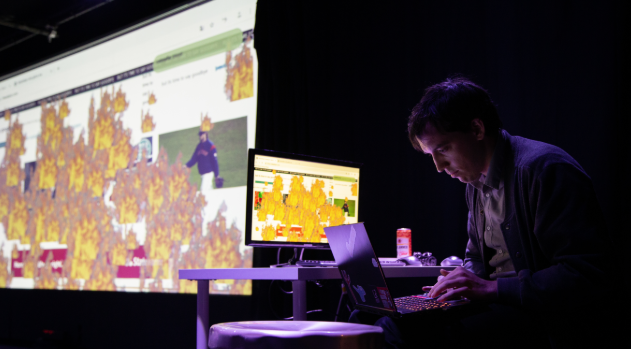
Incorporating Access, Equity, and the Arts in Coding Instruction
Today, as computational systems are managing more and more areas of our society, code is often regarded as neutral and free from bias. The reality has been shown to be somewhat different, as data scientists have uncovered various ways programmers can, intentionally or unintentionally, perpetuate and exacerbate real-world biases in the systems they create. The implications of this bias are illustrated by the experience of a large online retailer that discovered that its hiring AI discriminated against women and by the operation of social media targeting tools that kept certain users from seeing ads for jobs and housing because of their race. Given how these concerns are affecting the industry, there’s a need to train the upcoming generation of coders and designers in not only basic coding and computational thinking but also the application of an ethical framework within this practice to better anticipate the magnified impact that bias in computer systems can have.
Eugene Lang College of Liberal Arts at The New School is addressing this issue through its new interdisciplinary minor Code as a Liberal Art. Launched in spring 2020, this minor reimagines traditional coding instruction by combining computational thinking with liberal arts exploration, one of Lang’s strengths. This pairing of Lang’s core areas of study — anthropology, writing, culture and media, the natural sciences, mathematics, politics, and the arts — with computational thinking will give students the means to explore the effects and limitations of new technology from philosophical, logical, and public policy perspectives.
While coding instruction is rapidly becoming part of liberal arts programs, Lang’s program is unique in addressing access, equity, and social justice. Courses like Anthropology of Networks, An Interactive History of Computers Doing Bad Things, and Live Coding will investigate understanding the nature of tools, the role of social media in political discourse, and new forms of interactive creative. “There’s a growing need to understand code not just from a technical perspective, but for its greater impact on society,” says Todd Anderson, program director of Code as a Liberal Art. “As computation continues to spread into every aspect of modern life, it’s necessary to expand how we understand and critique the influence of machine learning, algorithmic bias, and digital surveillance.”
In keeping with Lang’s expansive vision of liberal arts education, there’s also opportunity to explore the creative and artistic aspects of computational thinking. In the multidisciplinary course Live Coding, taught by multimedia artist Melody Loveless, students will adapt performance practice to create new forms of expression with the aid of digital technology. In live coding, composition is combined with writing code, letting a performer manipulate a live process, like the production of sound or visuals, in real time. The class will explore the history of live coding, along with its philosophies and position in contemporary performance and computer science, and create performances to showcase its principles and techniques.
We’re going to start off with sound, then visuals, and later talk about more experimental things, like the idea of coding humans and choreography in the browser,” says Loveless. She says she’s excited to see what the students will come up with this semester and how they will approach the class.
Oliver Hoegh, BFA Dramatic Arts ’21, was surprised to find that The New School’s liberal arts college offers coding. “I was really shocked that Lang is offering coding, but I was like, ‘Okay, I’ll do it.’ I’m really excited about gaining a new medium to communicate. I also like the idea of being vulnerable and being open and accessible with how coding is and how live coding events work. I want to take all of that freedom and possibility and put it into theater and the performing arts.”